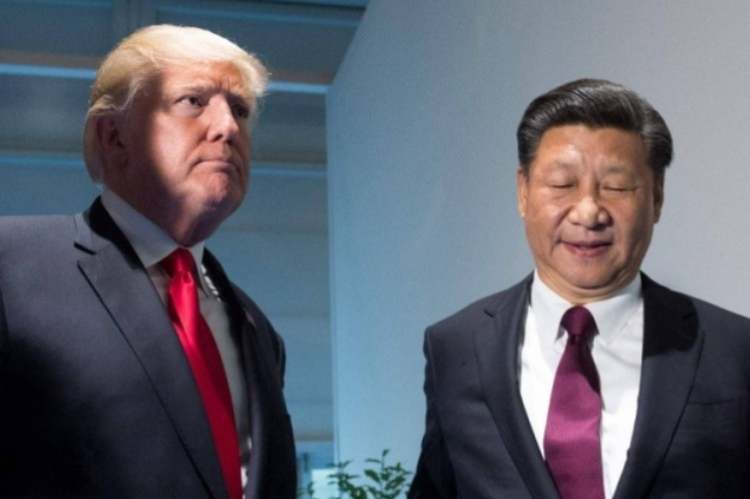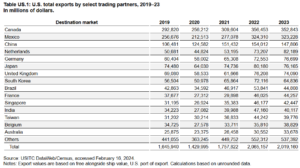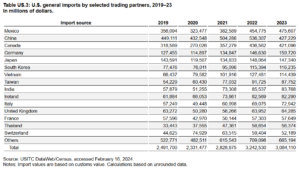
It was always a bad idea — an improvised gamble disguised as grand strategy. US President Donald Trump’s second attempt at cornering China through punitive tariffs is not just economically reckless, but strategically incoherent. Trump, who mistakes brinkmanship for diplomacy and bullying for policy, seems to have forgotten that trade wars are not easily won. Especially not against a rival as patient, economically versatile, and diplomatically adaptive as China.
The central flaw in Trump’s approach is his mistaken belief that the United States holds all the leverage. He assumes that China, dependent on the US market, will be the first to blink. That assumption is outdated. In 2018, when Trump first launched his tariff crusade, nearly 20% of China’s exports went to the US. Today, that figure has dropped to less than 13%. Chinese planners, well aware of the risks of overdependence, have already diversified both markets and supply chains.
More importantly, China’s exports to the US accounted for merely 2% of its GDP even before the current wave of tariff escalation. Beijing may prefer stability — especially amid its internal economic woes of real estate crises and rising unemployment — but it is in no mood to surrender. President Xi Jinping has publicly rejected what he calls Washington’s bullying, and his government has matched Trump’s 125% tariff hike on US goods with a retaliatory blow of equal magnitude.
READ I Trump’s tariff threat puts Indian pharma on edge
Trade war without strategy
This is no longer a trade spat. It is a chess match in which China is repositioning itself not as a cornered player but as a counterweight to an increasingly erratic superpower. While Trump plays poker with a megaphone, Xi is forging quiet alliances. His back-to-back engagements with the European Union, ASEAN nations, and South-South partners reflect Beijing’s determination to build an alternative order. While Washington isolates itself, China is threading new economic ties, from EU car markets to Southeast Asian supply chains.


There is also a political advantage China possesses that Trump cannot replicate. The capacity to endure pain and blame it on an external enemy. By invoking Chairman Mao’s defiance during the Korean War, Chinese officials are not just recalling history; they are preparing the public for long-haul sacrifice. And unlike the US, where voters frown at inflation and empty supermarket shelves, China’s top-down polity can suppress dissent and channel nationalistic sentiment.
But the myth of America’s unassailable power doesn’t stop with political misjudgement. Economically, the US is more vulnerable than Trump admits. China remains a linchpin in global supply chains. Even as US imports from China decline, third-country rerouting means that Chinese components still end up in American households — via Vietnam, Malaysia, or Mexico. The illusion of decoupling is just that — an illusion.
US reliant on China for essential goods
The US reliance on Chinese inputs spans 532 key product categories, including essential pharmaceuticals, consumer electronics, and rare earth elements — materials indispensable to defence, green tech, and digital innovation. Beijing knows this, and has already weaponised its control over rare earths by placing American defence and tech firms on its export control list. When a nation controls 72% of your rare earth imports, you do not pick tariff fights unless you are ready for economic masochism.
Nor is the impact of these tariffs confined to urban industries. Farmers in Trump’s heartland — soybean growers in the Midwest, poultry producers in the South — are once again collateral damage. These are the very people who powered Trump’s rise in 2016. And they are hurting. American soybean exports to China have never recovered from the first wave of trade wars. Chinese buyers have moved to Brazil, where the grain is cheaper and the diplomacy less abrasive.
During his first term, Trump had to bail out US farmers with $28 billion in subsidies. This time, the tariffs are higher and the global competition stiffer. Aid payments may offer temporary relief, but they cannot fix broken markets or restore lost credibility.
Even worse, the timing of these new tariffs couldn’t be more damaging. Planting season is underway, and farmers are unsure what to sow. Tariffs distort market signals, subsidies warp crop decisions, and uncertainty discourages investment. The long-term costs to US agriculture could be irreversible.
Failure of statecraft
Trump’s erratic approach — escalating tariffs without a defined endgame — reflects a broader failure of statecraft. He reportedly urged Xi to request a phone call to discuss the dispute, which would have implied submission. Beijing flatly refused. As Janet Yellen rightly observed, these are prohibitive tariffs with massive impacts. Yet, Trump carries on — without strategy, without allies, without credibility.
Indeed, even the promise of isolating China via a coalition of like-minded allies is unravelling. The EU, India, Japan, and South Korea — all crucial to any US-led counter-China strategy — are wary of Trump’s unilateralism. The Trans-Pacific Partnership, which could have been the economic bulwark against Beijing, was discarded by Trump in his first week in office. His attacks on Canada, disdain for Europe, and punitive tariffs on Southeast Asia have left America alone in a battle that cannot be won in isolation.
If this were a simple negotiation, Trump’s maximalist approach might have borne fruit. But trade wars are not real estate deals. They are contests of endurance, leverage, and global perception. China is fighting not just to defend its economy, but to signal that the age of American economic dominance — secured through coercion — is over.
In this battle, Trump is neither outsmarting China nor reshaping the global order. He is merely accelerating America’s decline as a trustworthy economic partner. A trade war without a strategy is like a ship without a compass. And Trump, true to form, has chosen to sail into a storm of his own making.
The question, then, is not whether Trump will win this trade war. The question is how much he will lose before he admits defeat.
